The Witcher: Blood Origin review: new Netflix fantasy show is a frustrating and magic-less misfire
- Launches exclusively on Netflix on December 25
- Spin-off of Netflix's main Witcher series
- Comprises four episodes
- Set 1,200 years before Geralt's adventures
- Charts the creation of the first Witcher
- Reveals how The Conjunction of the Spheres happened
- Created by Declan de Barra and Lauren Hissrich
- Stars Sophia Brown, Michelle Yeoh, Laurence O'Fuarain, Lenny Henry, Mirren Mack, Joey Batey, and Minnie Driver
Netflix’s Witcher series needs a big win. Just like the Continent, the fantasy franchise’s primary setting, the show’s fanbase is divided over the direction it’s going in. Adding to fans’ frustrations is the departure of lead actor Henry Cavill after The Witcher season 3, so its creative team needs a victory to calm the growing storm.
Unfortunately, The Witcher: Blood Origin doesn’t deliver the Geralt-like hero that they need. Netflix’s second Witcher spin-off is a fantastical misfire on multiple levels and struggles to add anything significant to its wider universe. There are some magical elements that, with better planning and execution, could have made for an enjoyable watch. As it stands, though, Blood Origin’s issues are far too great to make it worth your time.
Bumbled beginnings
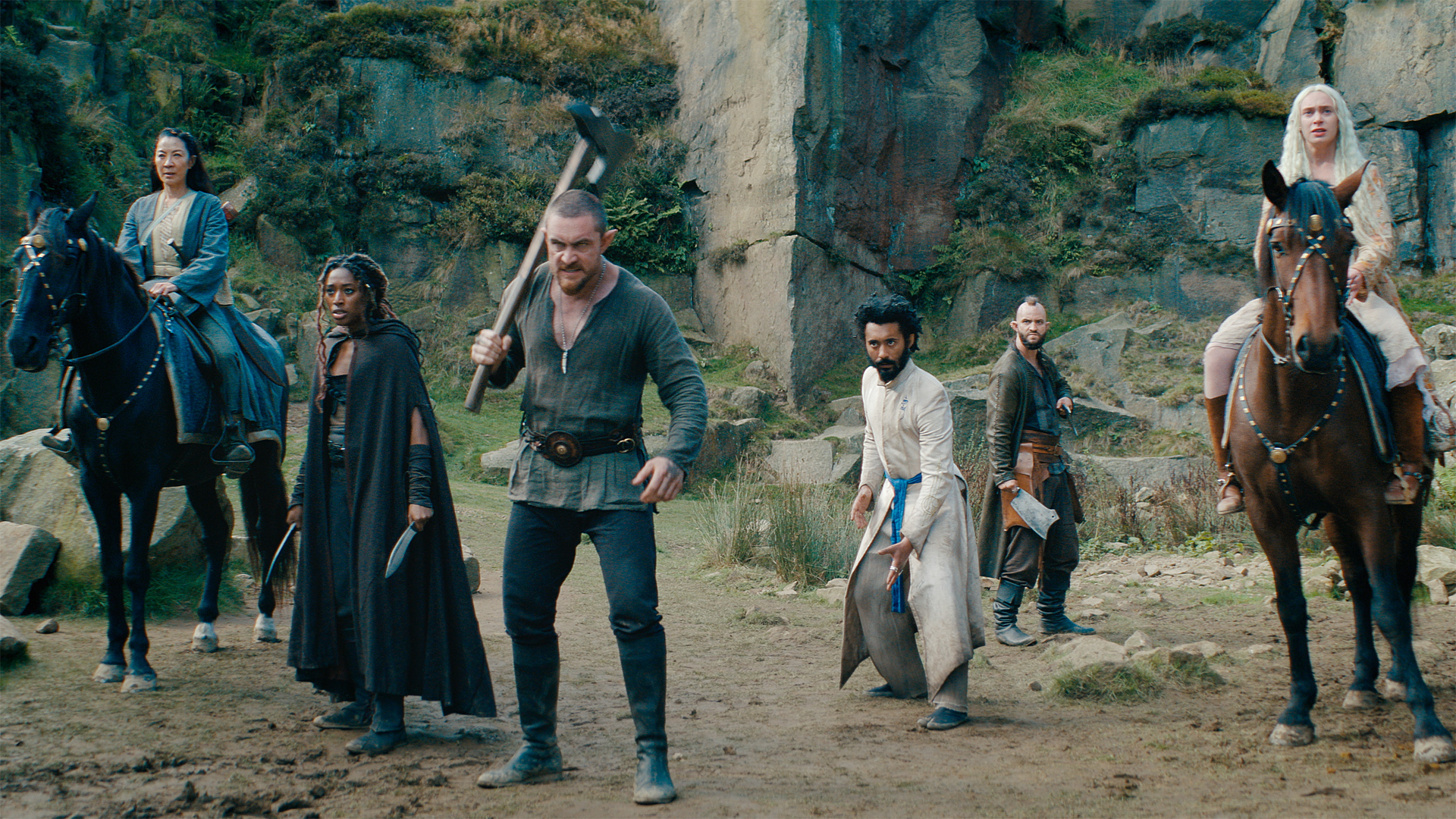
Set 1,200 years before Geralt’s adventures, Blood Origin tells the tale of seven destiny-bound outcasts who join forces to topple the tyrannical elven kingdom of Xin’trea. Together, this plucky band of warriors will reshape the Continent itself in two major ways. First, by creating the proto-Witcher, the Continent’s first-ever monster slayer. Then, by inadvertently triggering the Conjunction of the Spheres, a calamitous history-defining moment that causes multiple realms to collide and introduces new races (namely, monsters and mankind) to their world.
This ‘rebels versus empire’ approach makes Blood Origin sound like a fantasy-based Star Wars TV show. If the show was good, you’d likely find similarities between the two franchises. Regrettably, that’s not the case.
From the outset, Blood Origin’s narrative is a jumbled mess. Its opening salvo, which sees everyone’s favorite bard Jaskier (Joey Batey) make a crowd-pleasing cameo alongside the mysterious Seanchaí (Minnie Driver), is disorienting. Okay, it sets the scene for Blood Origin’s story. It’s also a sequence that’ll surely tie into the main Witcher series – its third season arrives in Q2 2023 – due to Jaskier’s appearance and the Scoia'tael’s live-action debut. Even so, it’s a slightly confusing entry point to this Witcher spin-off, particularly if you’re not expecting to see familiar faces in a show set in the Continent’s past.

Things don’t improve once Blood Origin’s actual story gets going. In fact, it’s arguable that it gets worse in its first two episodes.
Narratively, Blood Origin is all over the place. Its opening episode is overstuffed with all-too-brief character introductions, location hopping, major plot twists, and expository content that would’ve achieved far more if it was spread across two of its kind.
There’s no question Blood Origin narratively finds its feet in its second half
A show of this ilk needs time to bed in its characters, setting, and main story threads before it gets to the good stuff – namely, the fun-filled, violent action sequences (more on these later), and some politically charged and emotionally dramatic moments. But Blood Origin always feels like it’s rushing to get to those moments without giving due consideration to the journey itself.
And that’s a crying shame. As a story that fills in some huge gaps in Andrzej Sapkowski’s Witcher book series, it deserves to be told and flesh out The Witcher’s fascinating universe. Equally, the show’s primary characters – Éile (Sophia Brown), Fjall (Laurence O’Fuarain), and Scían (Michelle Yeoh) – are likeable and relatable enough to demand both your attention and sympathy for their individual and collective plights. However, it’s difficult to care about them when their backstories are reduced to passing remarks made during conversations between the trio.
Monolithic errors
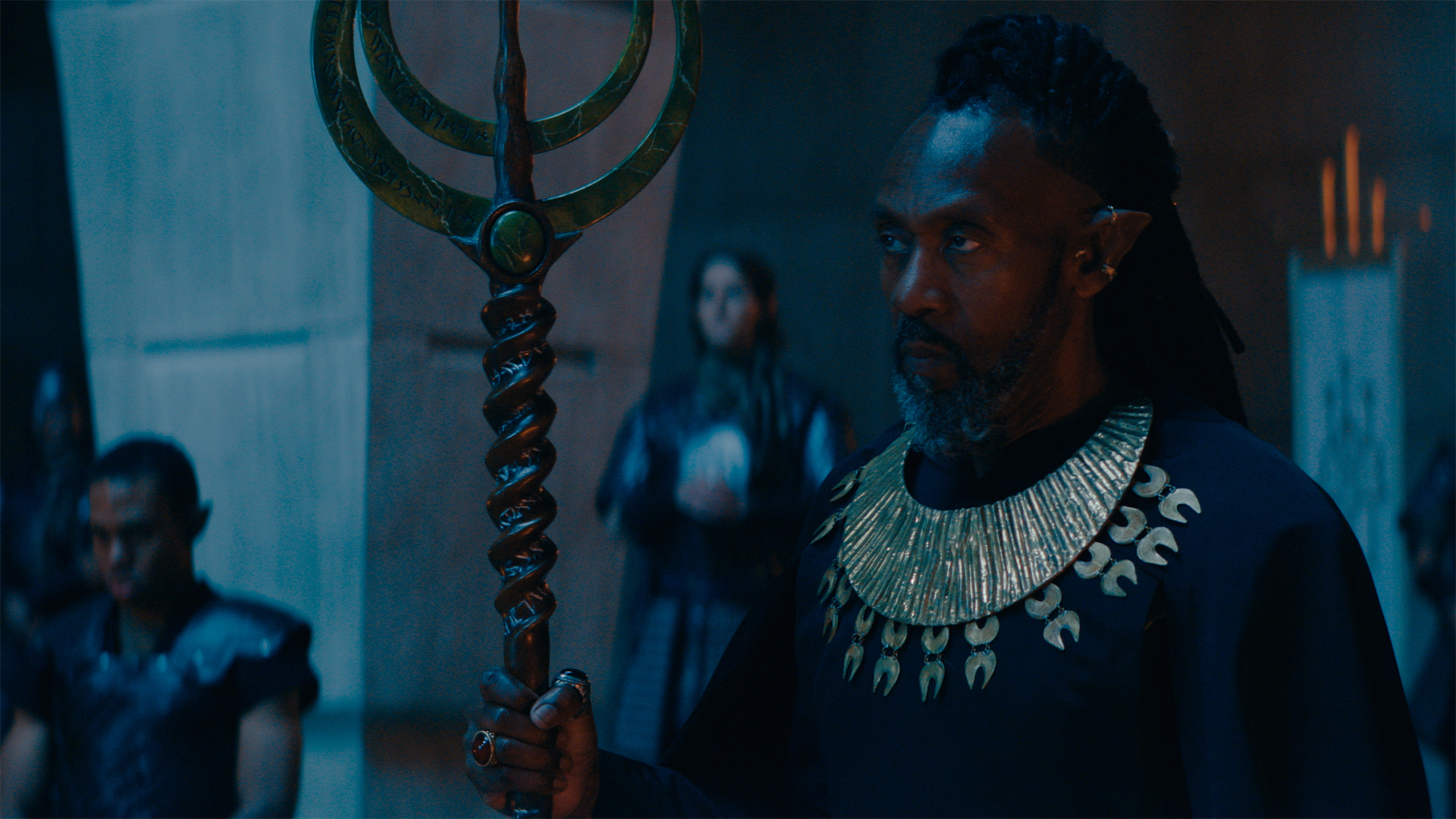
Given the importance of the group’s other eclectic rebels, it’s dissatisfying to spend even less time with them. Meldof (Francesca Mills), Syndril (Zach Wyatt), Zacaré (Lizzie Annis), and Callan ‘Brother Death’ (Huw Novelli) are potentially compelling characters with relatable flaws. However, apart from a brief and emotional rundown of Meldof’s past, we learn very little about them, Blood Origin relegating them to mere side characters who bemusingly end up playing huge roles in the Continent’s future.
Blood Origin’s antagonists – Chief Druid Balor (Lenny Henry) and Merwyn (Mirren Mack) – are also lacking in the character development department. Some scenes and dialog provide answers to their villainous turns, but largely, we’re just expected to abhor them because, well, Blood Origin’s heroes (and its audience) need someone to rail against. Even the politicking and power plays between the show’s bad eggs, which feels somewhat tacked on, have the air of a lightweight Game of Thrones.
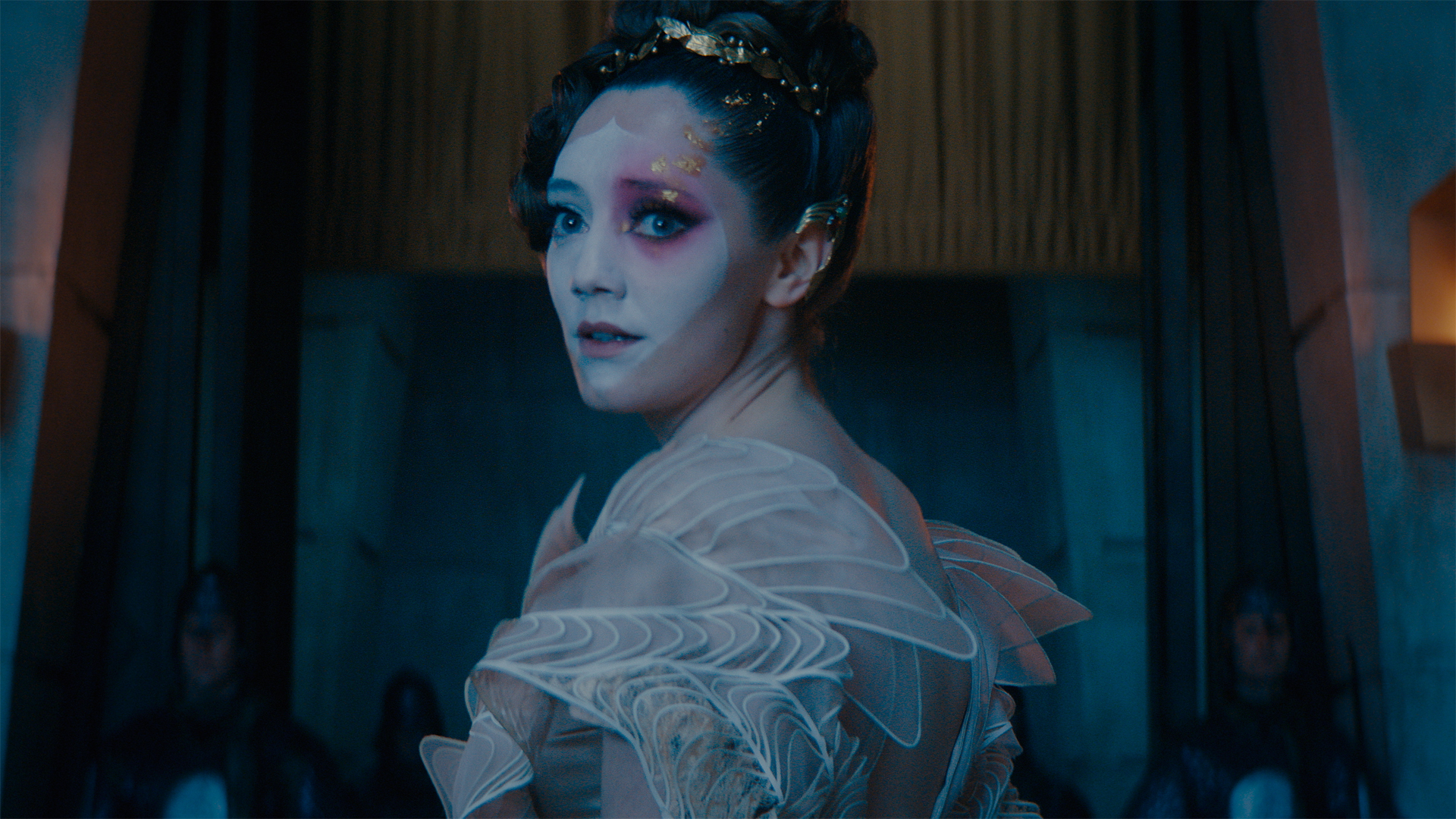
The amount of plot exposition is also wildly inconsistent. Important character details and even vital Witcher lore, such as the Trial of the Grasses, are only touched upon in maddening fashion. Meanwhile, discussions between characters about events that have just played out (which viewers witness first-hand) do nothing but add superfluous scenes to proceedings. Seanchaí’s plot narration, though likely helpful to some viewers, is sure to grate on many, too, with her regular interruptions breaking the immersion.
Blood Origin’s frustrating plot pacing, underdeveloped characters, and other problems all make sense when you learn it was originally a six-parter. The decision to cut it down to four episodes couldn’t be more obvious, with snapshot editorial cuts between scenes (especially in the first two episodes) displayed with alarming regularity. It’s hard not to think about what was left on the cutting room floor – and, more importantly, why it was removed – when you realize Blood Origin could’ve been a more cohesive spectacle with an extra episode or two.
Magical moments
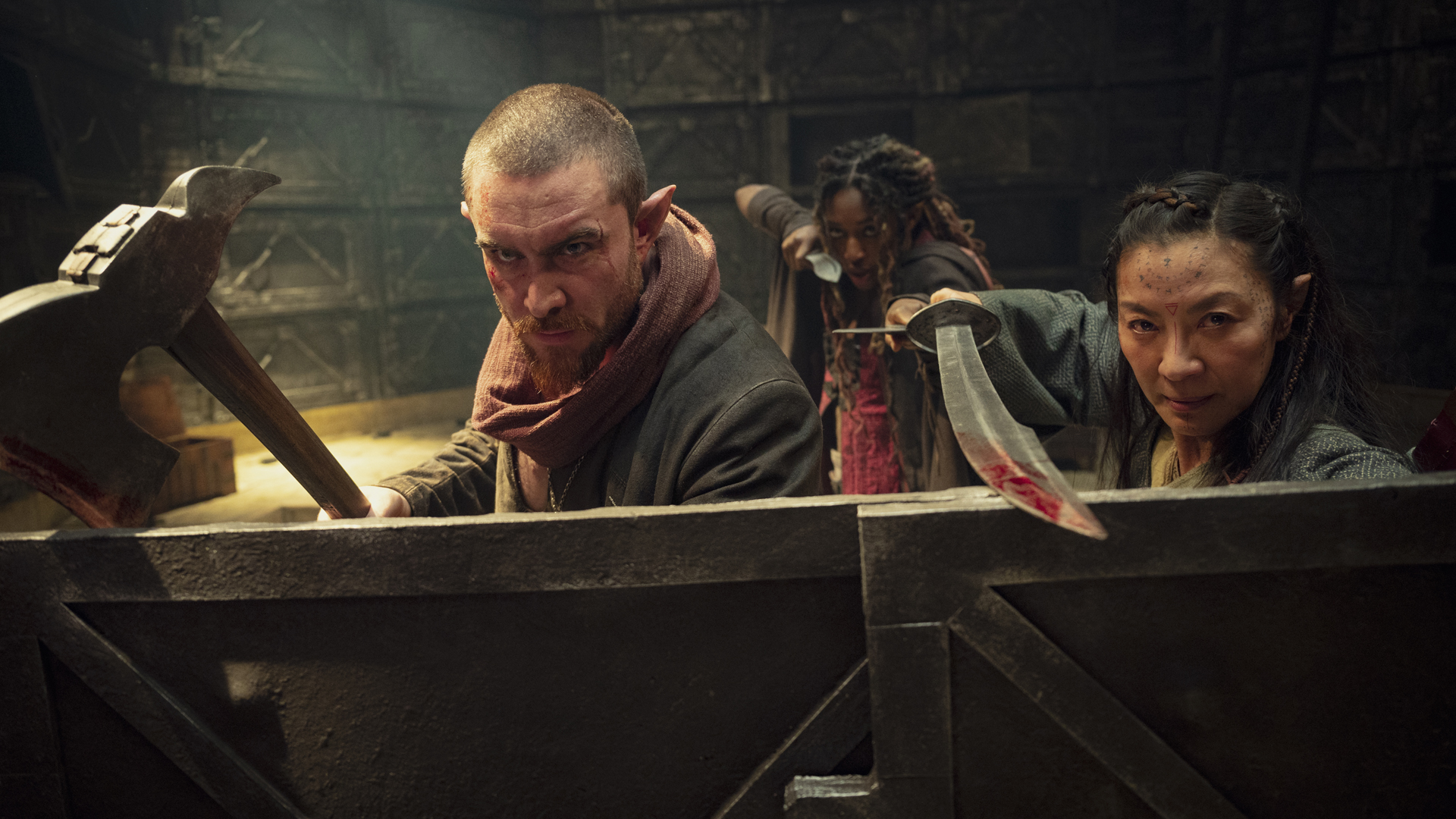
The Witcher: Blood Origin’s chaotic opening half is all the more galling as, in its final two episodes, the show belatedly finds its feet and turns into a fairly entertaining piece of television.
For starters, the action is gratuitously satisfying. Blood Origin’s latter stages are filled with brutal set-pieces – admittedly, there are a couple of terrifically barbaric action sequences early on, too – that make for thrilling spectacles. Such scenes are the best part of the miniseries and Blood Origin certainly would have benefited from having more of them.
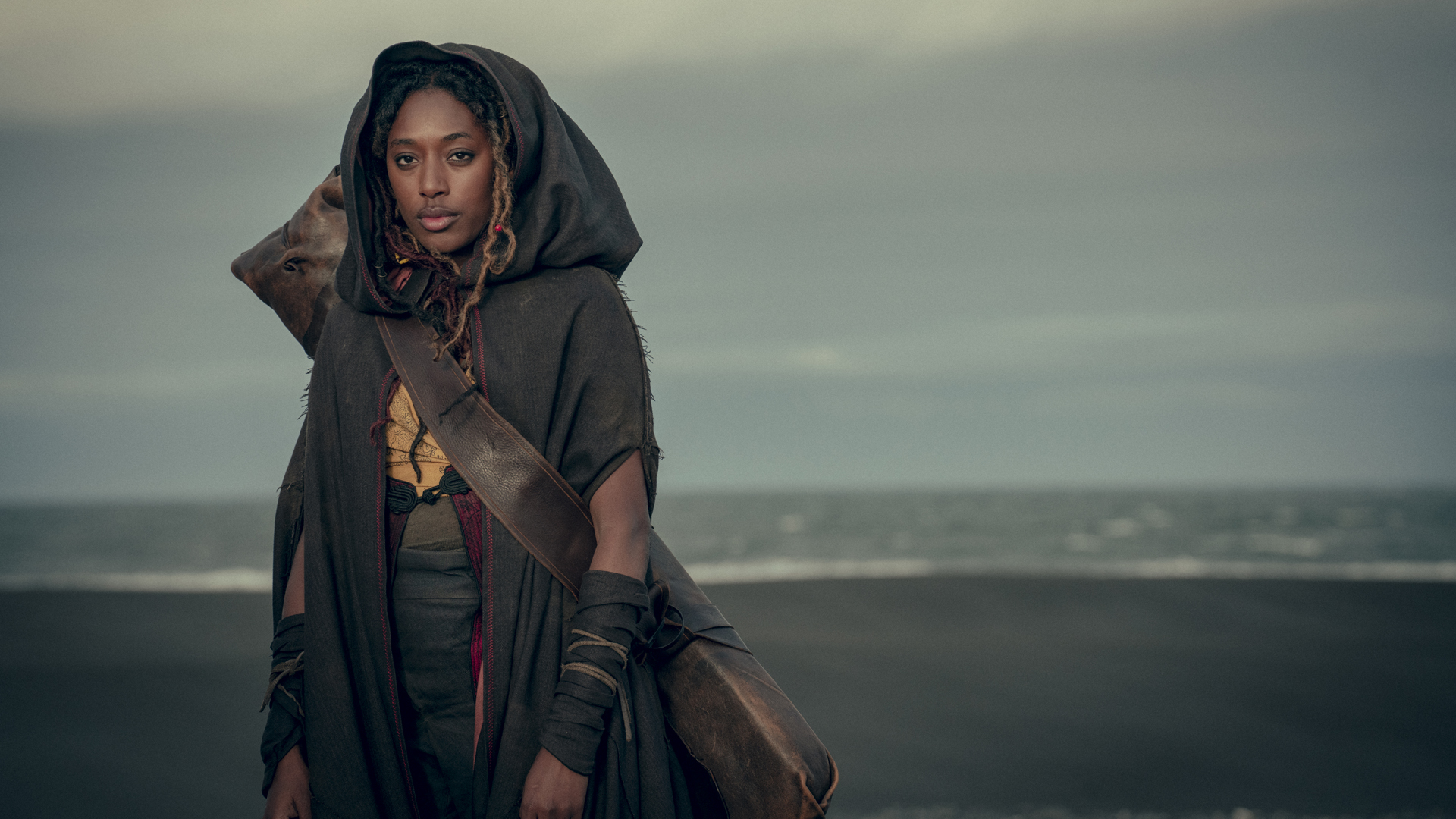
Elsewhere, there are a fair number of emotionally potent scenes that tug at the heartstrings. A foggy marsh-based sequence in episode 2 gives rise to some harrowing and traumatic flashbacks involving two of the show’s main characters. Episode 3’s Trials of the Grasses sequence is also a tense, and at times horrifying, watch. The series’ last two episodes are packed with hauntingly beautiful moments, too, such as Éile’s moving solo singing performance and the fallout from the finale’s climactic battle. The addition of previously unexplored lore, including a big revelation about the Continent’s monoliths, should equally please longtime fans of the novels.
There’s no question Blood Origin narratively finds its feet in its second half, adding in some intriguing twists along the way and setting the stage for what’s to come in The Witcher season 3. Without wanting to sound speculative, it seems much of the content that was filmed for these episodes has largely been retained. If that’s the case, it’s little wonder that the spin-off show’s final two episodes feel narratively tighter than their predecessors. Still, given how poor Blood Origin’s opening installments are, you’ve got to wonder whether audiences will stick it out until the end.
Our verdict
The Witcher: Blood Origin could have been another great spin-off (just like the animated movie Nightmare of the Wolf was of Netflix’s main series). Instead, it’s weighed down by a disjointed narrative, underdeveloped characters, rushed plot pacing, and the perplexing nature of its overall assembly – issues that speak to a major lack of creative vision and/or direction.
It has some standout moments and, at just three hours long, you can binge-watch it in a single sitting. The overarching problem Blood Origin has is that, due to its numerous problems, most people simply won’t do so.
Sure, some might point out its lack of filler material makes for a leaner show, which could be viewed as a good thing. However, it just means that the larger puzzle pieces don’t slot together intricately or effectively enough to make for a must-watch miniseries. If you have three hours to fill, you’d be better off streaming Avengers: Endgame, the megahit Marvel movie on Disney Plus, or Netflix’s The Irishman instead.
The Witcher might be one of the best Netflix shows we’ve seen, but its first spin-off series isn’t. Diehard Witcher fans could get a kick out of it, especially in its last two episodes, but aside from Jaskier and Seanchaí’s scenes that bookend the miniseries, most fans won’t want to take a stab at sitting through Blood Origin.
0 comments:
Post a Comment